Search Results
Showing results 141 to 160 of 167
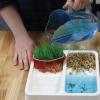
Exploring Earth: Land Cover
Source Institutions
This activity models some of the ways natural processes, such as erosion and sediment pollution, affect Earth’s landscape.
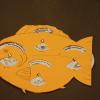
Fish Wheels
Source Institutions
In this activity, learners cut out and assemble wheels to explore how variations in fish body structures (mouth shape/position/teeth, body shape, tail shape, and coloration patterns) allow fish to sur
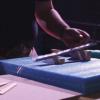
Chain Reaction II
Source Institutions
In this hands-on activity, learners use an assortment of (mainly household) items to complete Rube Goldberg-type challenges.
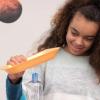
Exploring the Universe: Static Electricity
Source Institutions
This activity encourages visitors to build an electroscope—a simplified version of one of the tools scientists use to study the invisible forces on Earth and in space.
Magnus Glider
Source Institutions
A design challenge that takes paper airplanes into an entirely different direction: a magnus glider uses cups and and rubber bands to create a glider that uses the same forces that a curveball (from b
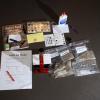
Sand Activity
Source Institutions
In this activity, learners observe mixtures of sand samples glued to note cards, and consider how sand can differ in size, shape, and color, and where it comes from.
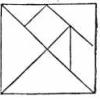
Tricky Tangrams
Source Institutions
In this activity (on pages 49-54 of PDF), learners play with tangrams, a set of triangles, squares and a parallelogram that can combine into a larger square as well as all sorts of other shapes.
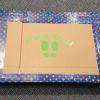
Paper Cup Stool
Source Institutions
In this activity, learners will explore how and why weight distribution works.
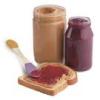
Peanut Butter and Jelly Robot
Source Institutions
This is an activity about robotics programming. Learners will discover how precise programmers have to be as they instruct a friend to make a peanut butter and jelly sandwich.
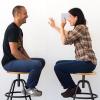
Cheshire Cat
Source Institutions
Can you deceive your eyes? When your eyes work normally, you see a nice 3 dimensional picture, but what happens when each eye sees something different?
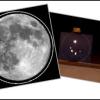
Magnification vs. Resolution: Can you see the flag on the Moon?
Source Institutions
This fun and simple hands-on astronomy activity lets learners explore the difference between telescope magnification and resolution.

See the Light
Source Institutions
Learners mix a solution of luminol with hydrogen peroxide to produce a reaction that gives off blue light.
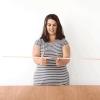
Center of Gravity
Source Institutions
A simple, yet fun activity that lets learners find the center of balance of a ruler (or any long thin object). Developed by the Exploratorium and no assembly needed.
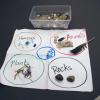
Beach Buckets
Source Institutions
In this activity, learners explore a bucket of sand and beach objects.
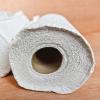
Paper Towel Strength
Source Institutions
In this activity, learners will test the strength of different brands of paper towels.
Pósteres Sobre el Espacio y Matemáticas
Source Institutions
Exponga estos pósteres en el salón o déjelos donde los chicos los puedan explorar. Los chicos buscan las respuestas en línea, en libros de consulta, y en calendarios y almanaques.
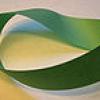
Magical Möbius
Source Institutions
In this tabletop activity (on pages 32-40), learners make Möbius strips -- 3D surfaces with only one side.
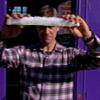
Jem's Pykrete Challenge
Source Institutions
In this activity, learners make pykrete by freezing a mixture of water and a material like cotton wool, grass, hair, shredded paper, wood chips, or sawdust.
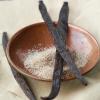
Molecule Match
Source Institutions
In this activity, learners will use their nose to sniff out hidden scents using extracts and cotton balls. Activity includes materials list, game instructions, STEM connections and more.
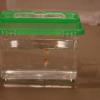
Fish Features and Habitats
Source Institutions
In this activity, learners observe live fish in tanks to consider how their body structures are related to their behaviors and habitats.
